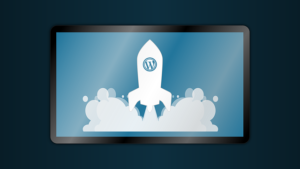In the PPC (pay-per-click) advertising model, advertisers pay search engines to display their content prominently in search engine results. This kind of online advertising involves charging advertisers every time a user clicks on their advertisement. Only when a user clicks on an ad and is taken to an advertiser’s website is the search engine or other platform paid. This article will explore the critical advantages of PPC, its significance, and how it operates. It also goes into how to run a PPC campaign.
What is PPC?
Gaining knowledge about ‘What is PPC?‘ could prove advantageous if you work in management or advertising. PPC advertising is a kind of online marketing where a business pays a charge each time a user clicks on one of their ads, resulting in increased natural traffic to the website.
The intention is to encourage a specific type of user action, such as registering or purchasing. Different keywords might be used in every one of your advertising initiatives. Many users may see a PPC advertisement, but when users click on the ad, the advertiser is charged.
Advantages of PPC
Immediate Results
One of the most significant advantages of PPC is the ability to generate immediate results. Unlike SEO, which can take months to show results, PPC campaigns can start driving traffic and generating leads almost instantly once the ads go live. This feature is beneficial for businesses looking to boost their visibility quickly.
Cost Control
PPC offers unparalleled control over your advertising budget. You can set a maximum cost per click (CPC), a daily budget, and a total campaign budget, ensuring you only spend what you intend. Additionally, PPC allows you to pay only when an interested user clicks on your ad, making it a cost-effective advertising strategy.
Targeted Advertising
One of the advantages of PPC is it allows for highly targeted advertising. You can define your audience based on various parameters such as keywords, location, demographics, and even the time of day. This precise targeting ensures your ads reach the right people at the right time, maximizing your chances of conversion.
Measurable ROI
One of the standout advantages of PPC is the ability to accurately measure and track your return on investment (ROI). With tools like Google Analytics and Google Ads, you can track every click, impression, and conversion. This data lets you understand which ads perform well and adjust your strategies accordingly.
Flexibility
PPC campaigns offer incredible flexibility. You can adjust your ads, targeting, and budget based on performance data. This adaptability is crucial for optimizing your campaigns and ensuring you get the best results.
Brand Awareness
Even if users don’t click on your ads, PPC can help build brand awareness. Every time your ad appears, it increases the visibility of your brand. Over time, this repeated exposure can lead to greater recognition and trust among potential customers.
Complementary to Other Marketing Strategies
PPC works well in conjunction with other digital marketing strategies. For example, it can complement SEO efforts by capturing immediate traffic while waiting for organic rankings to improve. Similarly, PPC can support content marketing by promoting high-quality content to a broader audience.
Competitive Advantage
In highly competitive industries, PPC can provide a significant edge. By strategically bidding on high-value keywords and crafting compelling ads, businesses can outrank competitors and capture a larger market share.
Immediate Results in Detail
When launching a PPC campaign, the results are almost instant. Your ad can appear in search results as soon as approved, driving traffic to your website. This immediate visibility benefits time-sensitive promotions, seasonal sales, or new product launches. For instance, an e-commerce site launching a new product can use PPC to attract potential buyers and gain traction quickly.
Cost Control in PPC
Managing costs effectively is among the top advantages of PPC advertising. Businesses can set their budgets to align with their financial capabilities. For example, a small business can start with a modest daily budget and increase it as it sees positive returns. Moreover, the pay-per-click model ensures that the budget is spent on engaged users who have shown interest by clicking on the ad.
Targeted Advertising Strategies
PPC’s targeting capabilities are vast. Advertisers can create particular audience profiles based on keywords, age, location, interests, and device usage. This level of granularity ensures that ads are shown to the most relevant audiences, improving the chances of conversion. For example, a local business can target ads to users within a specific geographic radius, ensuring they reach potential customers nearby.
Measuring ROI in PPC
Tools like Google Ads and Google Analytics provide comprehensive insights into campaign performance. Advertisers can track clicks, impressions, conversion rates, and cost per acquisition (CPA). This data helps evaluate the campaign’s effectiveness and make data-driven decisions to enhance performance. For instance, if a particular ad group drives more conversions, you can allocate more of your budget.
Flexibility and Adaptability
PPC campaigns can be adjusted in real time. If an ad isn’t performing well, you can tweak the ad copy, adjust the bid, or refine the targeting parameters. This flexibility allows for continuous optimization, ensuring the best possible outcomes. A/B testing, where two versions of an ad are tested against each other, can provide valuable insights into what resonates best with your audience.
Enhancing Brand Awareness with PPC
PPC isn’t just about driving immediate conversions; it’s also a powerful tool for building brand awareness. Repeated exposure to your brand name and messaging can create familiarity even when users don’t click on your ads. This can increase engagement rates as users recognise and trust your brand. For example, retargeting ads can remind users of your brand after visiting your site but not making a purchase.
Integration with Other Marketing Strategies
PPC complements other marketing strategies seamlessly. It can provide immediate visibility while waiting for SEO efforts to bear fruit. Additionally, the advantage of PPC is it can amplify content marketing efforts by promoting valuable content to a broader audience. For instance, promoting a blog post via PPC can drive more traffic and engagement, enhancing the overall impact of your content marketing strategy.
Gaining a Competitive Advantage
In competitive markets, PPC can be a game-changer. Businesses can outmaneuver competitors by bidding on strategic keywords and creating compelling ads, leading to increased market share and revenue. For example, if a competitor ranks organically for a high-value keyword, you can bid on that keyword and appear above them in search results through PPC.
Common Misconceptions about PPC
Several things could be improved about PPC, such as its being too expensive or only suitable for large businesses. However, with proper management and strategy, companies of all sizes can benefit from PPC. It’s important to understand that PPC is an investment, and when done correctly, it can yield significant returns.
Tips for Successful PPC Campaigns
To succeed in PPC, it’s crucial to follow best practices. This includes conducting thorough keyword research, writing compelling ad copy, optimizing landing pages, and monitoring and adjusting campaigns. Avoid common pitfalls like neglecting negative keywords, which can prevent your ads from showing for irrelevant searches, thus saving your budget.
Conclusion
The advantages of PPC are numerous and can significantly enhance your digital marketing efforts. From immediate results and cost control to targeted advertising and measurable ROI, PPC provides a robust platform for businesses to reach their marketing goals. By leveraging the power of PPC, you can drive traffic, increase conversions, and build brand awareness, ultimately leading to business growth.




